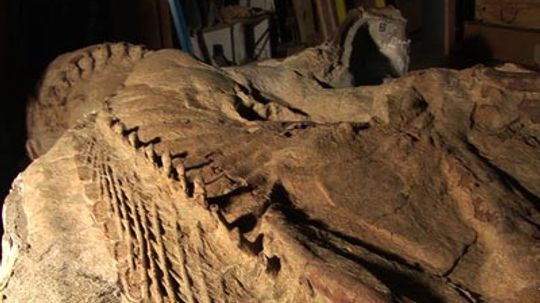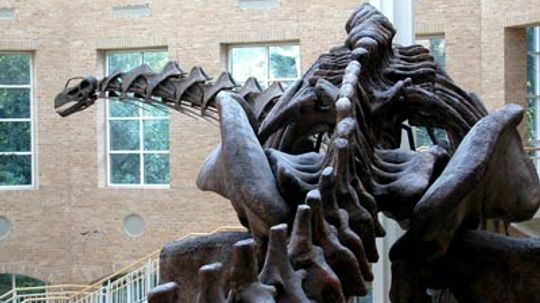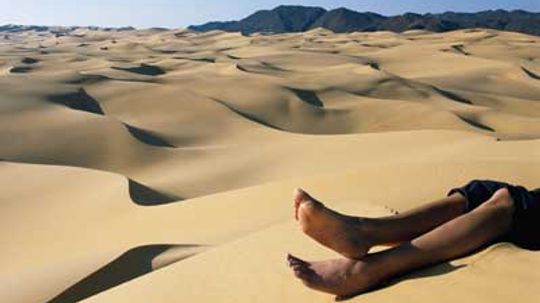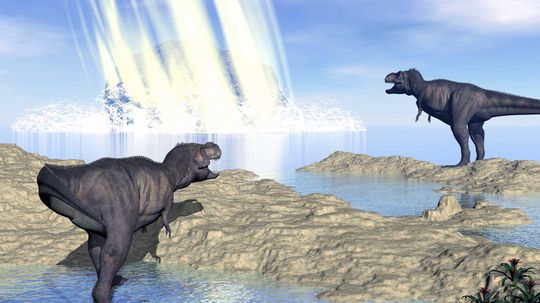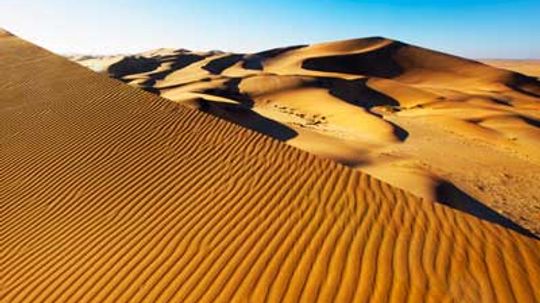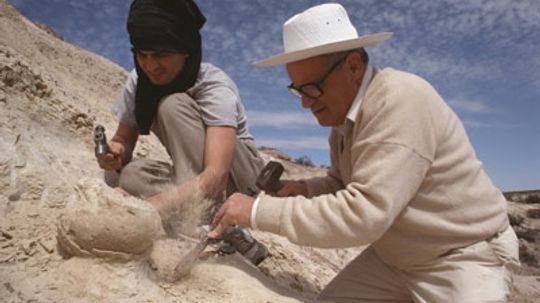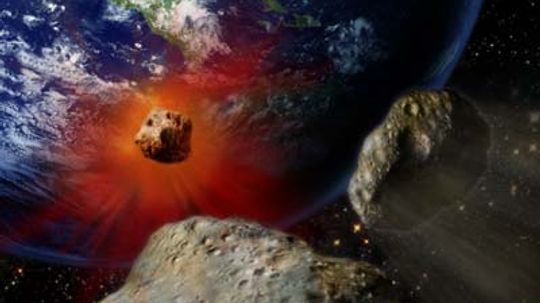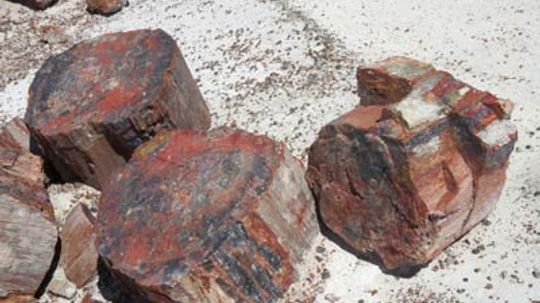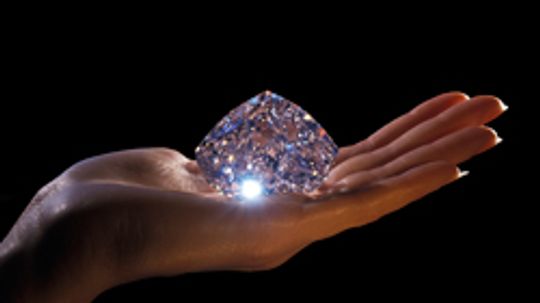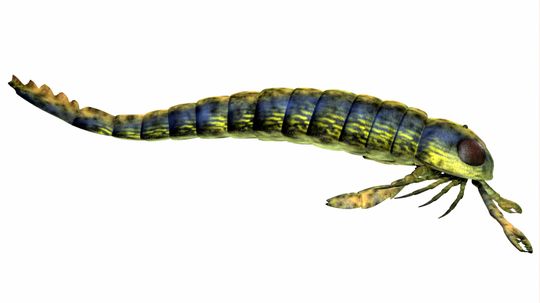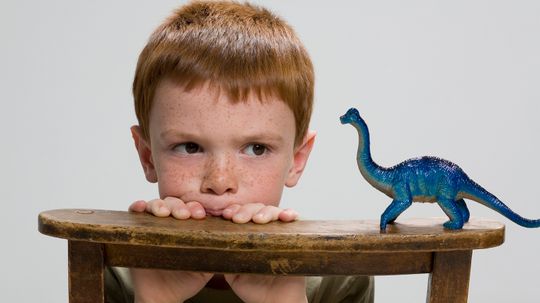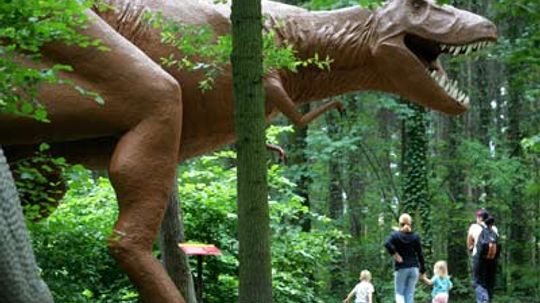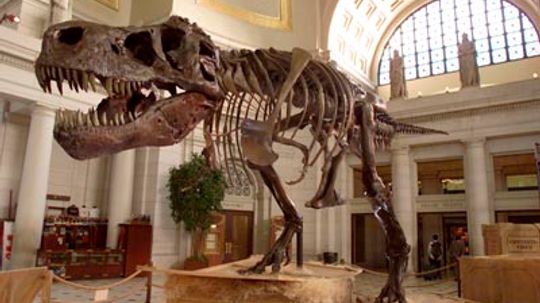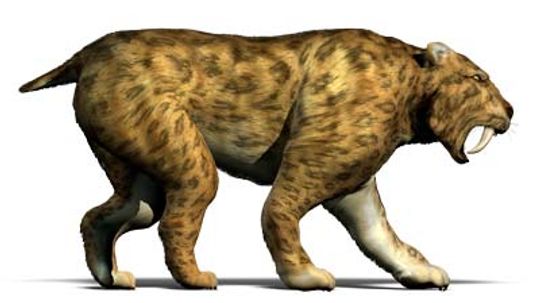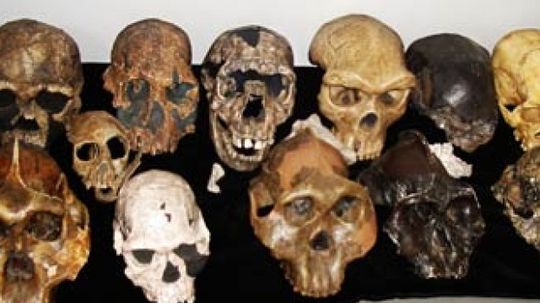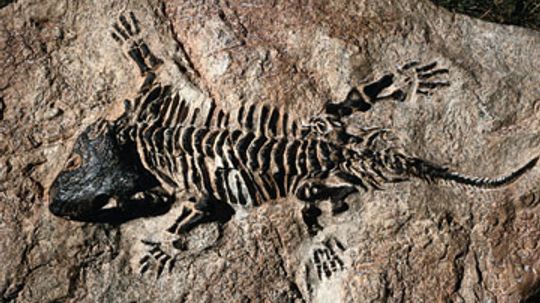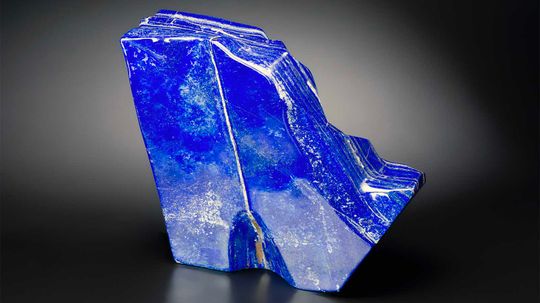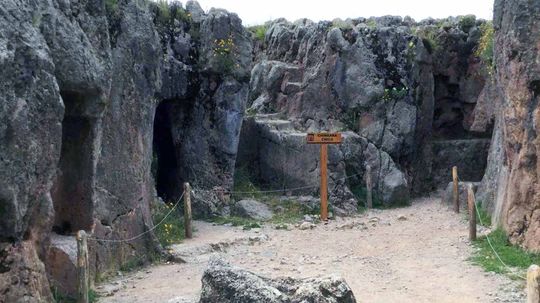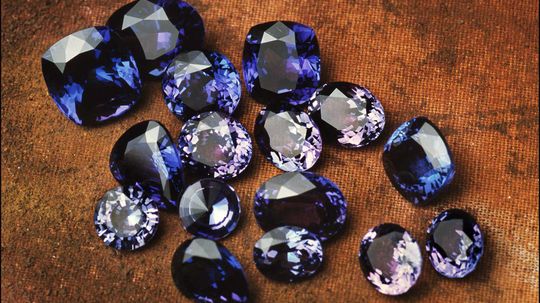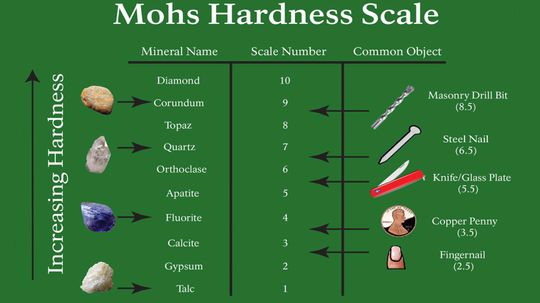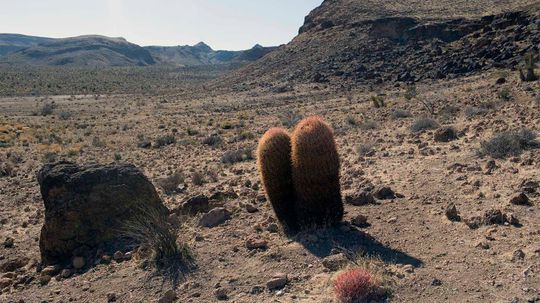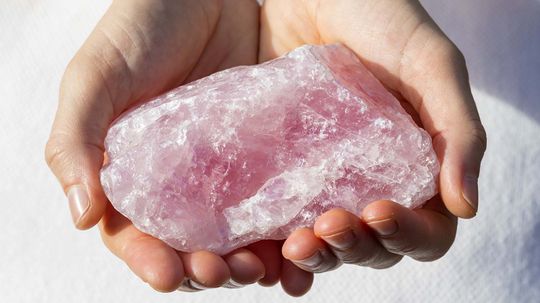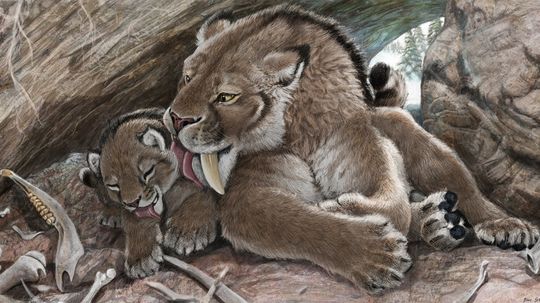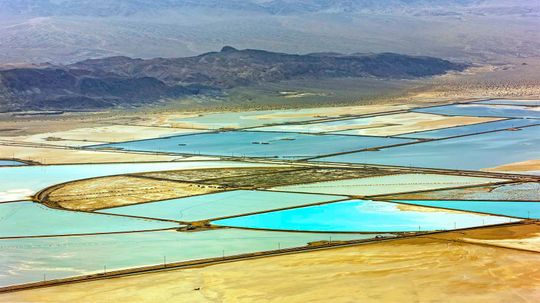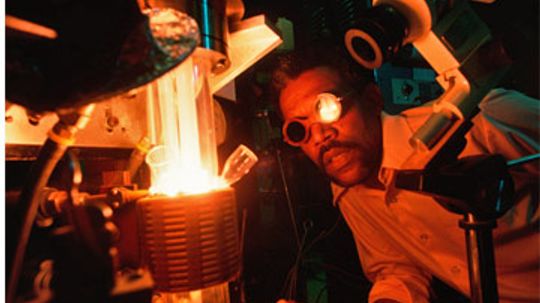Geology
Geology is the study of the composition and physical properties of rocks, minerals, gems and other related earth materials, including diamonds and crystals. Scientists gain an understanding of the Earth's history by studying its composition.
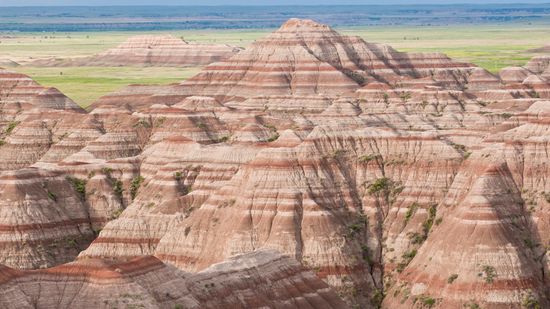
3 Types of Rocks Every Aspiring Geologist Should Know
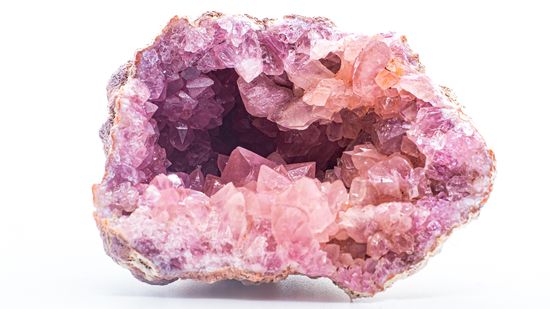
What Are Geodes and Where Can You Find Them?
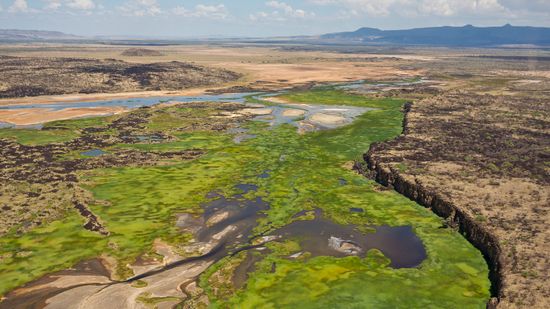
Is Africa Splitting in Two? Really? Here's the Scoop
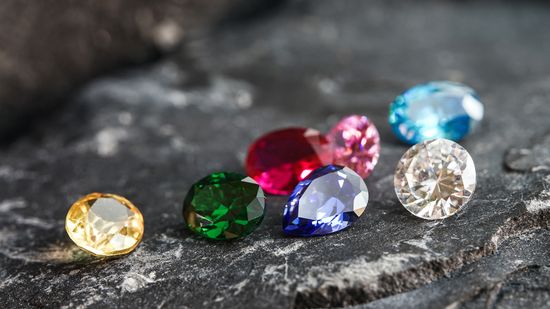
15 Types of Gemstones to Add a Little Sparkle to Your Life
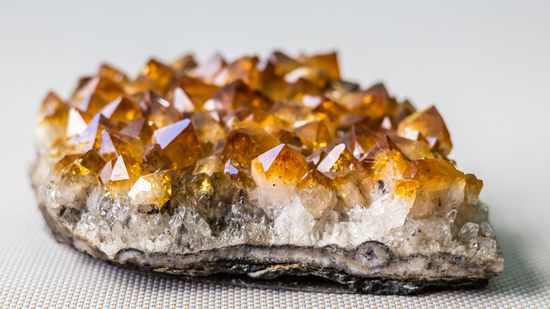
13 Brown Gemstones for Understated Elegance

10 Red Gemstones That Evoke Power and Bold Luxury
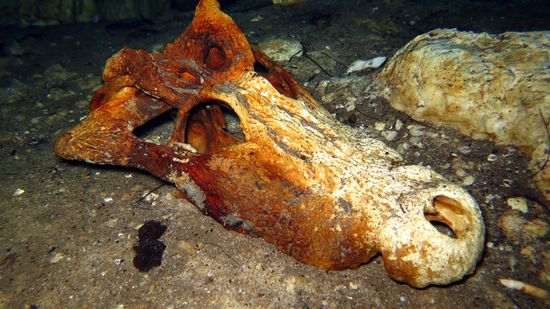
River-bottom Bones: The Strange World of Underwater Fossil Hunting
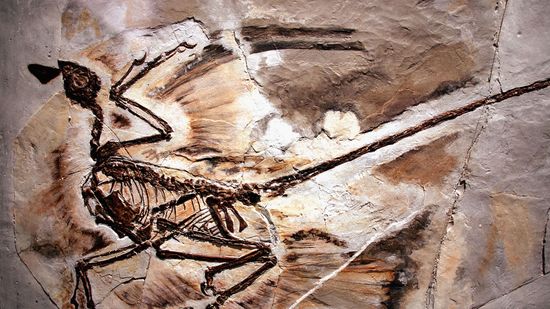
Velociraptor Alert: The Feathered Dinosaur Quiz
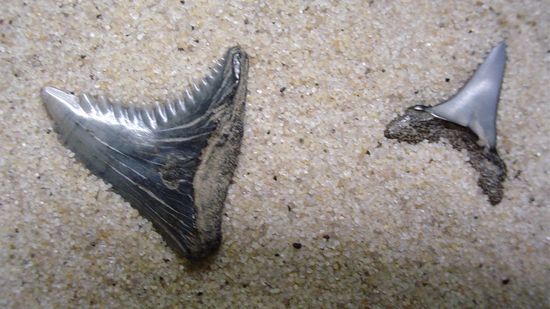
The Rockin' State Fossils Quiz
Learn More / Page 3
Ever since its discovery in 2000, a dinosaur fossil named Leonardo has held the interest of paleontologists the world over. A 3-D model of the animal even toured the world. So what's the big deal?
Sometimes dinosaur fossils are too large and heavy to display without damaging them. How are those enormous models built? And what makes them look so realistic?
Sand dunes belch, moan and hum. They roll across the desert, seeking out new locales. You might even say they breed. It's no wonder people call these giant sand formations lifelike.
By Debra Ronca
Advertisement
Researchers think the Chicxulub crater was caused by the massive asteroid that also killed off the dinosaurs 66 million years ago. What else do we know about this peak-ring crater?
By Mark Mancini
Did you know that sand dunes can sing? And, their artistic curves certainly make for a gorgeous photograph. In fact, you might call the sand dune the diva of the desert.
By Debra Ronca
Dinosaur eggs and the embryos inside can teach us a lot about dinosaur reproduction and behavior. But how do scientists get the rocky embryos out from the equally rocky shells?
We all know the cartoons of prehistoric people running from dinosaurs aren't realistic. But many animals living today have ancestors from that time.
Advertisement
Everyone knows that once a bone has fossilized, it's hard as a rock, right? So how did scientists find soft tissue inside a broken dinosaur bone?
Diamonds are beautiful and popular - but not everyone can afford these gems. While man-made versions are less expensive, most lack the luster and brilliance of the real thing, except moissanite. See how it compares!
By Melissa Russell-Ausley
The sea scorpion may have been the largest bug to ever live on the Earth, according to a recent find. Learn more about the giant sea scorpion.
By Josh Clark
Are dinosaurs real? Most people don't have to travel too far to answer that question in the affirmative with some kind of exhibit displaying dinosaur fossils. Or simply look at any bird you can see outside your home.
Advertisement
The 1993 movie "Jurassic Park" did a good job of bringing the idea of cloning dinosaurs into popular culture. It portrayed dinosaur cloning in a way that made sense to a lot of people, but is it really possible?
Every time a new fossil is found, one of the first things scientists determine is how old that fossil really is. But how do they determine it, and how can they be completely accurate?
Saber-tooth cats have long been likened to tigers, but they aren't tigers at all. While they share some physical traits and hunting practices with tigers, saber-tooth cats are also quite different.
Fossils tell a story, much like the clues at the scene of a crime. Researchers look for evidence and paleontologists study that evidence to answer questions about the past.
Advertisement
At best, fossilization is a long and tricky process that mineralizes an occasional Tyrannosaurus rex or other extraordinary find. How has that affected our chances at charting a model of life itself?
By Robert Lamb
This ancient rock adorns King Tut's coffin and the Sistine Chapel. And at one time it was more precious than gold. What is it about this deep blue rock that has drawn us in for centuries?
There are caves all over the world, but some are in places that are hard to explore - hidden by rocks, ruins or even under ice. We've found seven secret caves you probably never knew existed.
Tanzanite is so rare, it is sourced from just an 8-square-mile (20-square-kilometer) area in Tanzania. It was first discovered in the late 1960s and it burst onto the jewelry scene thanks to Tiffany & Co.
Advertisement
The Mohs hardness scale is used by geologists and gemologists as a way to help identify minerals using a hardness test. How does it work?
Not all deserts have sand and they're certainly not all hot. They're just extremely dry and have little vegetation. That means deserts are located all over the planet, including at super-high elevations.
This beautiful pink quartz is found in numerous places throughout the world and is thought to be associated with unconditional love.
Researchers discovered that everyone's favorite prehistoric cat had some seriously big bones - even as a youngster.
By Robert Lamb
Advertisement
The element lithium is one of just three created during the Big Bang and has been used for mental health care for decades. But now it's in higher demand than ever before.
From the Hope diamond to the shiny bits in instant coffee, crystals have always held the power to fascinate us humans. Are they more than just a bunch of pretty facets?
